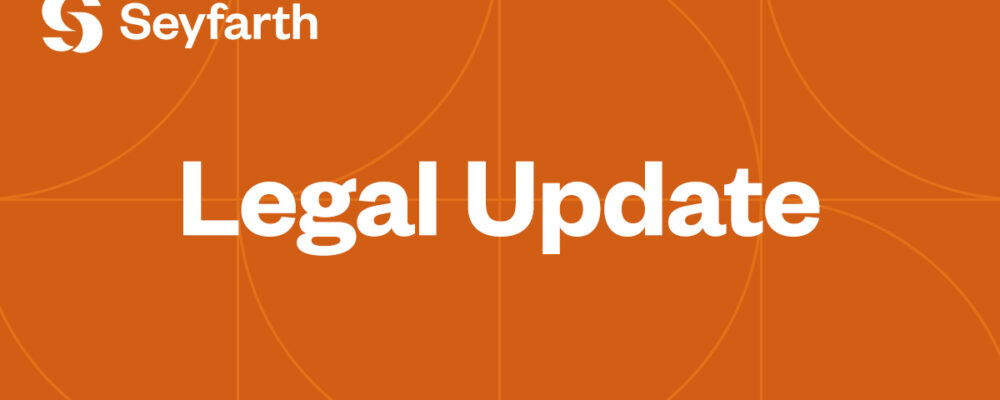A recent decision of the Illinois Motor Vehicle Board (the “Board”) reinforces why auto manufacturers need to ensure they have a proactive process in place to address the timely renewal of expiring dealer agreements. Based on the Board’s recent decision, OEMs cannot and should not assume that the terms of an expired dealer agreement remain enforceable, particularly when the issue is being decided by a dealer board, as one OEM recently found when it sought to enforce a right of first refusal (“ROFR”) in an expired dealer agreement.
In JP Motors, Inc. v. Mercedes-Benz USA, LLC (File MVRB 339-23), JP Motors, Inc. (“JPM”) entered into an Asset Purchase Agreement (“APA”) in early 2023 to sell multiple dealerships, including a Mercedes-Benz dealership, which it owned and operated from a single location in Peru, Illinois. Upon receiving notice of the APA, Mercedes-Benz USA (“MBUSA”) requested an apportionment of the blue sky in order to evaluate whether to exercise its contractual ROFR on the sale of the Mercedes-Benz dealership. JPM refused, contending that the Illinois Motor Vehicle Franchise Act (the “Act”) prohibited MBUSA from exercising its ROFR over anything but the entire deal.
Litigation ensued. MBUSA brought an action in federal court on grounds that JPM’s refusal to apportion the APA price attributable to the Mercedes-Benz dealership violated the dealer agreement between MBUSA and JPM (the “Dealer Agreement”). JPM filed a Notice of Protest with the Board, asserting that MBUSA’s apportionment demand and refusal to otherwise review the transaction violated various provisions of the Act. The federal district court dismissed MBUSA’s action on abstention grounds, deferring to the proceedings before the Board. By agreement, the parties submitted the case to the Board’s Hearing Officer through written submissions.
The Hearing Officer framed the issue presented as “whether MBUSA was entitled to an apportionment of the purchase price for the MBUSA assets before it was contractually or statutorily required to evaluate the proposed sale.” According to the Hearing Officer, if entitled to apportionment, then MBUSA did not violate the Act by demanding it; but if not entitled, then by conditioning its review of the sale upon apportionment, MBUSA violated the Act by imposing an unlawful condition or restriction on the APA. The Hearing Officer found that as a threshold matter, apportionment necessarily required that MBUSA have a valid ROFR by contract or statute.
The question thus became whether MBUSA had a valid ROFR right. The Hearing Officer concluded that the Act does not give franchisors a right of first refusal separate and apart from any contract, and that MBUSA’s ROFR right must arise from the Dealer Agreement. But the record established that the Dealer Agreement had expired by its terms in 2012 and was never renewed, on the same or different terms. Even though (i) the evidence established that the parties continued to operate for more than a decade as if the Dealer Agreement had been renewed and was binding; and (ii) the Illinois dealer statute makes it unlawful for a manufacturer “to fail or refuse to extend the franchise or selling agreement of a motor vehicle dealer upon its expiration without good cause,” the Hearing Officer ruled that the “expired” Dealer Agreement did not provide either party with any contractual rights. Because that meant there was no operative and enforceable Dealer Agreement, the Hearing Officer recommended that MBUSA be liable for violating numerous provisions of the Act for “unreasonably” and “arbitrarily” insisting on rights that it did not have to the detriment of the sale process, with an award to JPM of fees and costs.
The Board adopted the Hearing Officer’s Recommended Decision in its entirety in a May 2024 Final Order. MBUSA has filed a complaint for administrative review in Illinois state court in June 2024. In the meantime, the Board’s decision reinforces the need for OEMs to be vigilant in monitoring the expiration of term dealer agreements and have a proactive process in place for systematically renewing those agreements. OEMs should not rely on the continued mutual performance to mean that the material terms of an expired dealer agreement are still binding and enforceable. Particularly given the non-judicial forum where many of these dealer disputes play out, relying on the enforceability of expired agreements presents a significant risk. OEMs should insist upon actual formal renewal by dealers of the then-current form of Dealer Agreement. A proactive renewal process is also an opportunity for OEMs to raise any material performance or operational deficiencies (with a request for an improvement plan) or the failure of the dealer to comply with prior commitments. All of this should be implemented well in advance of the actual renewal date so that the OEM can provide any required or appropriate statutory notice. A proactive process is something a dealer cannot unilaterally ignore.
“With approximately 900 lawyers across 17 offices, Seyfarth Shaw LLP provides advisory, litigation, and transactional legal services to clients worldwide.”
Please visit the firm link to site






